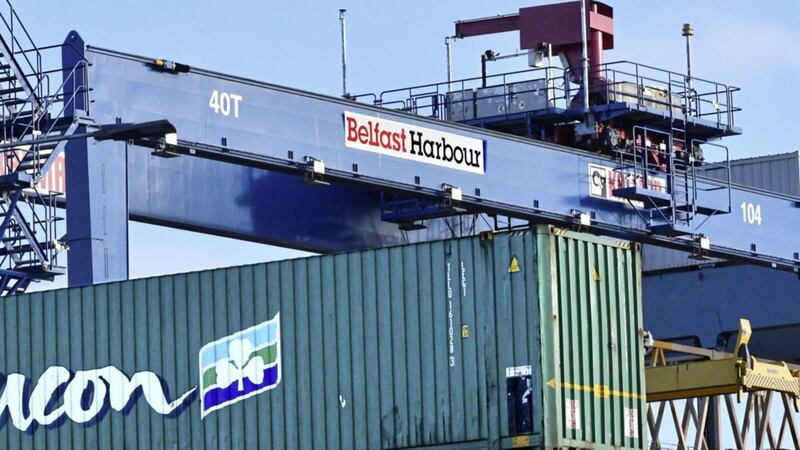AS Covid-19 restrictions continue to ease, many businesses in Northern Ireland are opening their doors for the first time this year.
For some, this will mean a need to get up to speed with post-Brexit trade and customs formalities; arrangements which have caused headaches for several businesses already this year.
Supply chain disruption and empty supermarket shelves were reported in the first few weeks of the year as businesses navigated the significant changes to the trading environment brought about by the UK’s departure from the EU.
For those trading for the first time since Christmas, or for those who had significantly stockpiled, they will be dealing with these challenges for the first time.
As EU and UK officials explore ways to overcome contentious areas of the Protocol, customs controls and paperwork continue to be required for goods moving between Great Britain and Northern Ireland.
All goods entering Northern Ireland must comply with EU customs rules meaning businesses must complete import declarations. Goods such as meat and fish products travelling from Great Britain into Northern Ireland must also be checked to ensure they meet EU standards in the event they do cross the border into Ireland.
In an attempt to keep products flowing and to avoid empty shelves, some of the normal checks and rules have been suspended. The grace periods afforded to supermarkets and certain trusted suppliers as well as checks on animal products such as cheese and milk entering Northern Ireland from Great Britain have been unilaterally extended to October 2021 by the government on account of the turmoil seen at ports in January.
For those not afforded grace periods, customs paperwork is a reality of the post Brexit trading environment. A government funded customs support service, the Trader Support Service, has been developed to help businesses adapt to the new trading arrangements and to ensure goods would flow freely into Northern Ireland.
This free to use service has almost 39,000 registered businesses who between them have made almost 200,000 declarations. As the economy opens up and more goods begin to flow into Northern Ireland at more normal levels, demand for this service is very likely to increase.
For goods imported into the region “at risk” of crossing the border into Ireland, businesses face an additional layer of administration. Goods entering Northern Ireland from Great Britain will avoid customs duties if they remain in the region.
However, if they are deemed “at risk” of leaving Northern Ireland and sent to the EU by crossing the border into Ireland, they will have to pay an EU tariff.
Many businesses have reported taking a cautious approach and have declared goods to be “at risk” at time of import and have paid the associated tariffs because they do not qualify for one of the exemptions or waivers.
A refund of these tariffs is due if these goods do not subsequently cross into the EU. However, there is no mechanism in place yet for these tariffs to be repaid.
For businesses already trading in difficult economic circumstances, this is creating cash flow issues and there are reports that some British suppliers are deterred from supplying the region on a duty paid basis because of the lack of such a refund scheme.
Regardless of the current discussions on the Protocol, businesses on the ground are given the sizeable task of adhering to these new trading rules.
The government have offered grants of £2,000 to SMEs to help and eligible businesses have until 30 June to apply. For many, the additional paperwork will be challenging with or without government supports.
:: Zara Duffy is head of Northern Ireland, Chartered Accountants Ireland







